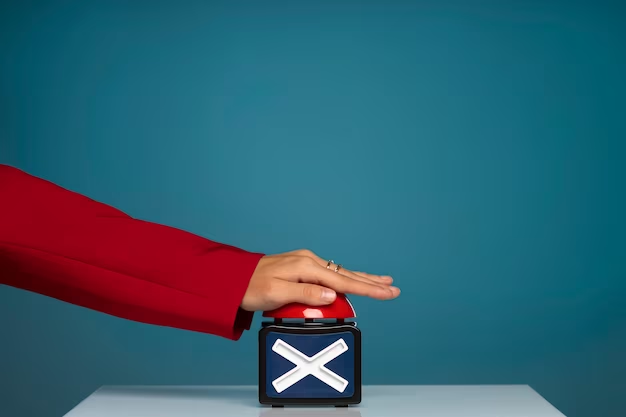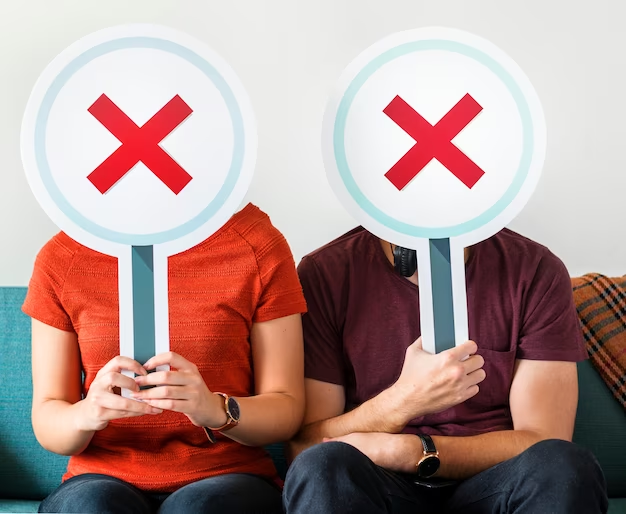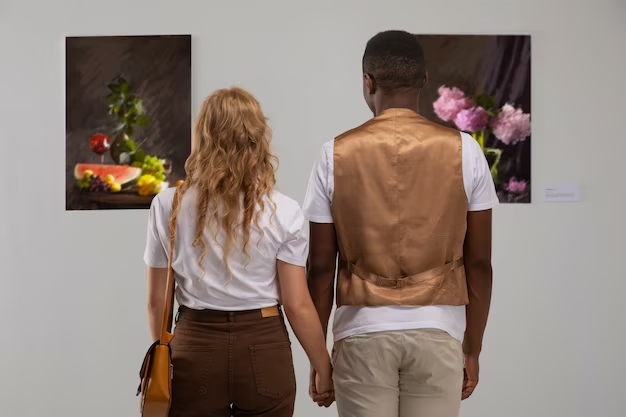
The Art of Honesty: How to Handle Unwanted Date Invitations
In the dance of dating, we often find ourselves caught between yes and no. “I said yes to a date I don’t want to go on” is a phrase many can relate to, representing the internal conflict of managing our own desires versus not wanting to hurt someone else’s feelings. From understanding why we sometimes agree to unwanted dates to learning how to tell someone you don’t want a second date, this article is your guide to navigating these tricky waters with grace and honesty.
Why Do We Say Yes When We Mean No?

Before delving into the strategies of how to say no effectively, it is essential to understand the underlying reasons why people often find themselves saying yes when they actually mean no. This phenomenon is common in various social situations, including accepting a date. Let’s explore the motivations behind this behavior, offering insights into why we sometimes struggle to decline offers or invitations, particularly when it comes to dating.
Fear of Confrontation
One of the primary reasons people say yes when they want to say no is the fear of confrontation. Let’s examine this in detail:
- Fear of upsetting others: Many individuals are naturally inclined to avoid conflict and seek to maintain harmony in their relationships. Consequently, they may say yes to avoid disappointing or upsetting the person who asked them out, fearing that a rejection might lead to hurt feelings or strained connections.
- Desire to please: Some people are driven by a strong desire to be liked and accepted. They may fear that declining a date will lead to rejection or disapproval, making them more likely to say yes to avoid disappointing the other person. This desire to please can sometimes override their own preferences and desires.
Temporary Lapse in Judgment
Sometimes, individuals agree to dates they’re not genuinely interested in due to a momentary lapse in judgment. Here are a few factors that can contribute to this:
- Social pressure: In certain situations, people may feel pressured to conform to societal norms or expectations, leading them to agree to a date without considering their true feelings. This pressure can come from cultural expectations, family traditions, or the influence of peers.
- Peer influence: Friends or acquaintances may encourage someone to go on a date even if they are not enthusiastic about it, creating a temporary lapse in judgment. The desire to fit in or be part of a group can sometimes cloud one’s decision-making process.
Avoiding Rudeness
Another reason people say yes when they mean no is to avoid appearing rude. This motivation can stem from various considerations:
- Politeness: Society often values politeness and courtesy, making it challenging for some individuals to decline an invitation without feeling impolite or disrespectful. They may agree to a date out of a sense of politeness, even if they don’t genuinely want to go.
- Fear of negative judgment: People may worry that rejecting a date could be perceived as arrogant or dismissive, leading them to say yes reluctantly. They may want to avoid being judged negatively by the person who asked them out or by others who might hear about their response.
Understanding these motivations can be the first step toward crafting more genuine and comfortable responses when declining future dates. It is essential to remember that honesty and assertiveness can lead to healthier and more fulfilling relationships, as they allow individuals to express their true feelings and boundaries openly.
Strategies for Declining a Date
Now that we have explored the underlying reasons for saying yes when we mean no, let’s discuss strategies for effectively declining future dates while maintaining respect and kindness.
Honesty is Key
Honesty serves as the fundamental cornerstone when it comes to the art of gracefully declining a date invitation. While the truth need not be delivered with brutal bluntness, the ability to find a gentle and tactful manner to express your lack of interest is paramount. Opting for transparency over leading someone on is a far more considerate approach, as it significantly reduces the risk of misunderstandings and potential hurt feelings.
Utilizing “I” Statements
In the delicate dance of declining a date, shaping your response around your own emotions and needs proves highly effective. The power of “I” statements lies in their ability to convey your perspective without casting blame or making the other person feel defensive. For instance:
- “I’ve come to realize that I’m not quite ready to embark on dating right now.”
- “I’ve been reflecting, and I sense that we may not be the most compatible match.”
By placing the emphasis on your emotions and personal experiences, you can communicate your decision with compassion and empathy, ensuring that the other person doesn’t feel attacked or slighted.
Balancing Firmness and Kindness
Striking a delicate equilibrium between assertiveness and compassion in your response is of paramount importance. It’s crucial to be unambiguous and direct in your message, avoiding any room for false hope or misunderstanding. Instead of offering vague statements like “Maybe next time,” it’s more advisable to assert your decision firmly, such as saying, “I don’t believe it’s in our best interest to continue seeing each other.” Such clear communication leaves no room for doubt and fosters mutual understanding.
Offering Closure
Although not always obligatory, providing a sense of closure can contribute to clarity and resolution in the situation. If you feel comfortable, you might consider briefly explaining the reasoning behind your decision. However, it’s vital to refrain from compiling an exhaustive list of perceived flaws or faults with the date or the person. Instead, focus on delivering a concise and respectful explanation, such as:
- “I believe our life priorities may differ, and I want to be fair to both of us by sharing my honest thoughts.”
- “I’ve observed that our personalities might not be the ideal match for a romantic relationship.”
This approach gracefully concludes the conversation without delving into unnecessary details or criticism.
Expressing Gratitude
Regardless of whether you choose to accept or decline the date, expressing gratitude is an essential aspect of the equation. Acknowledging the effort the other person made by extending the invitation demonstrates respect and appreciation for their interest in getting to know you better. A simple “Thank you for the invitation, I genuinely appreciate it” can convey your gratitude and soften the impact of your declining response.
Pros and Cons of Different Ways to Decline a Date

Direct and Honest Communication
Declining a date can be a sensitive and challenging task, but employing direct and honest communication is often considered one of the most ethical and mature approaches. This method involves openly expressing your feelings and intentions, leaving no room for misinterpretation.
| Pros | Cons |
| Clear and unambiguous communication | Potential for hurting the other person’s feelings |
| Demonstrates respect for the other person’s emotions | May lead to an uncomfortable conversation |
| Provides closure |
Direct and honest communication is often recommended because it fosters open and respectful dialogue. However, it can be emotionally challenging, as rejection is rarely easy to accept. The potential for hurting the other person’s feelings is a significant drawback, and some individuals may react with disappointment or sadness. Moreover, such conversations can be uncomfortable and may lead to awkward moments or tension. Despite these challenges, many believe that this approach is the most considerate way to decline a date.
Ghosting
Ghosting, in contrast, is a method where you abruptly cease communication without providing any explanation or closure. It can be appealing to those who prefer to avoid confrontational situations or uncomfortable conversations.
| Pros | Cons |
| Avoids confrontation | Causes emotional hurt and confusion |
| Saves time and effort | Damages your reputation in the long run |
| Leaves both parties without closure |
Ghosting has gained notoriety due to its potential to leave the other person feeling hurt and confused. By abruptly cutting off communication, it can lead to emotional distress and may cause the other person to wonder what went wrong. In the long run, ghosting can harm your reputation and make you appear insensitive or unreliable, which can negatively affect your relationships. Additionally, both parties are denied the opportunity for closure, leaving loose ends that can linger and create emotional turmoil.
Giving an Excuse
Providing an excuse, even if it’s not entirely truthful, is another approach to declining a date. This method aims to soften the impact of rejection by offering a reason for your decision.
| Pros | Cons |
| Softens the impact | Potential for dishonesty |
| Politeness | May lead to further questions or escalation |
While giving an excuse may soften the initial rejection, it can also lead to potential dishonesty if the excuse is not genuine. Over time, this may result in feelings of guilt and dishonesty, affecting your own emotional well-being. Additionally, providing an excuse may prompt the other person to ask for more details or suggest alternative solutions, potentially prolonging the conversation and making it more complicated than originally intended.
Real-Life Scenarios and Responses
In everyday life, we often find ourselves in situations that require delicate handling and effective communication. Here are the two common scenarios related to dating and offer detailed responses to help you navigate them with grace and honesty. The key to handling these situations is clear and respectful communication.
Scenario 1: You said yes to a date you don’t want to go on, and it’s tomorrow.
It’s common to feel apprehensive about a date you’ve agreed to but no longer wish to attend. In this scenario, it’s essential to be honest and respectful while addressing the situation. Here’s a step-by-step response to help you communicate your feelings:
- Address the person by their name: Start your message with a polite and personalized greeting. Using their name adds a personal touch and shows respect.
Example: “Hey [Name],” - Express your thoughts: Begin by acknowledging your previous agreement and expressing your sincere thoughts and feelings.
Example: “I’ve given it some thought, and I realized that I’m not as ready to date as I thought I was.” - Apologize for the short notice: It’s important to acknowledge the inconvenience your decision may cause. Apologize for the short notice to show understanding and courtesy.
Example: “I’m sorry for the short notice, but…” - Be straightforward: Clearly state your decision not to go on the date, avoiding ambiguity or mixed signals.
Example: “…I don’t think I should go on the date tomorrow.” - Conclude on a positive note: Wrap up the message with a kind and well-wishing statement, showing that you bear no ill will.
Example: “I appreciate your understanding, and I hope you find someone wonderful to spend your time with.”
Scenario 2: After a first date, you know you don’t want a second one.
Dating can be a journey of exploration, and sometimes, after a first date, you may not feel a romantic connection. In this scenario, it’s crucial to communicate your feelings honestly and respectfully. Here’s a step-by-step response:
- Thank your date: Start your message by thanking your date for their time and company. This sets a positive tone for the conversation.
Example: “Thank you for the lovely evening, [Name].” - Acknowledge your thoughts: Express that you’ve reflected on the date and your feelings without going into excessive detail.
Example: “I’ve thought about it…” - Be clear but gentle: Communicate your decision not to pursue a second date in a straightforward yet compassionate manner.
Example: “…I don’t feel a romantic connection between us.” - Express your wishes: Extend your best wishes for their future endeavors, showing kindness and goodwill.
Example: “I don’t think we should go out again, but I wish you the best.”
How to Avoid Unwanted Dates in the Future
Avoiding unwanted dates in the future is essential for maintaining your personal boundaries and ensuring that your dating experiences are enjoyable. Below are practical tips on how to make informed decisions when accepting or declining date invitations, with a strong emphasis on self-awareness, setting boundaries, and effective communication.
Listen to Your Gut
Listening to your intuition is crucial when it comes to avoiding unwanted dates. Here’s how to do it effectively:
- Self-Reflection: When you receive a date invitation, take a moment to reflect on your feelings. Ask yourself why you might feel hesitant or uncertain about saying yes. This self-awareness can help you make better decisions.
- Give Yourself Time: Don’t feel pressured to give an immediate response. It’s perfectly acceptable to tell the person that you need some time to consider the invitation. This allows you to evaluate your feelings more thoroughly.
Set Boundaries Early
Establishing and maintaining your boundaries is key to avoiding uncomfortable or unwanted dates. Here’s how to set boundaries effectively:
- Identify Your Deal-Breakers: Before you start dating, make a list of your non-negotiable deal-breakers. These are the things that you cannot compromise on, such as values, goals, or specific personal boundaries.
- Communicate Clearly: When you meet someone and decide to go on a date, communicate your boundaries clearly and respectfully. This helps ensure that both parties are on the same page and can prevent future misunderstandings.
- Don’t Compromise: Stick to your boundaries even if it means declining an invitation. It’s essential to prioritize your well-being and long-term happiness over short-term discomfort.
Practice Saying No
Learning to say no can be challenging, especially in dating scenarios. However, it is a vital skill for avoiding unwanted dates. Here are some tips to help you practice saying no:
- Role Play: Practice saying no in front of a mirror or with a trusted friend. This can help you become more comfortable with the words and tone you use when declining an invitation.
- Be Polite but Firm: When saying no, be polite and respectful, but also be clear and firm. Avoid giving false excuses or leading someone on.
- Offer an Alternative: If you genuinely like the person but cannot accept the date, offer an alternative, like suggesting another time or activity that you are comfortable with.
Conclusion
Navigating the world of dating and responding to unwanted invitations can be challenging. Remember, your comfort and honesty are paramount. Whether you’ve said yes to a date you don’t want to go on or are pondering how to tell someone you don’t want a second date, the key is communication. Be honest, be kind, and most importantly, be true to yourself. As you move forward in your dating journey, remember that every “no” is a step closer to a “yes” that feels right.
FAQs
Q: What if I said yes to a date I don’t want to go on out of politeness?
A: It’s common to want to avoid hurting someone’s feelings, but remember, going on a date you’re not interested in isn’t fair to either party. Use the strategies above to decline politely but firmly.
Q: How do I tell someone I don’t want a second date without being mean?
A: Use “I” statements to express your feelings and be honest about not feeling a connection. Thank them for the time spent together and wish them well.
Q: Is it okay to cancel a date last minute if I change my mind?
A: While it’s better to avoid last-minute cancellations, if you genuinely realize you can’t or don’t want to go, it’s better to cancel than to go unwillingly. Apologize for the inconvenience and be honest about your feelings.


